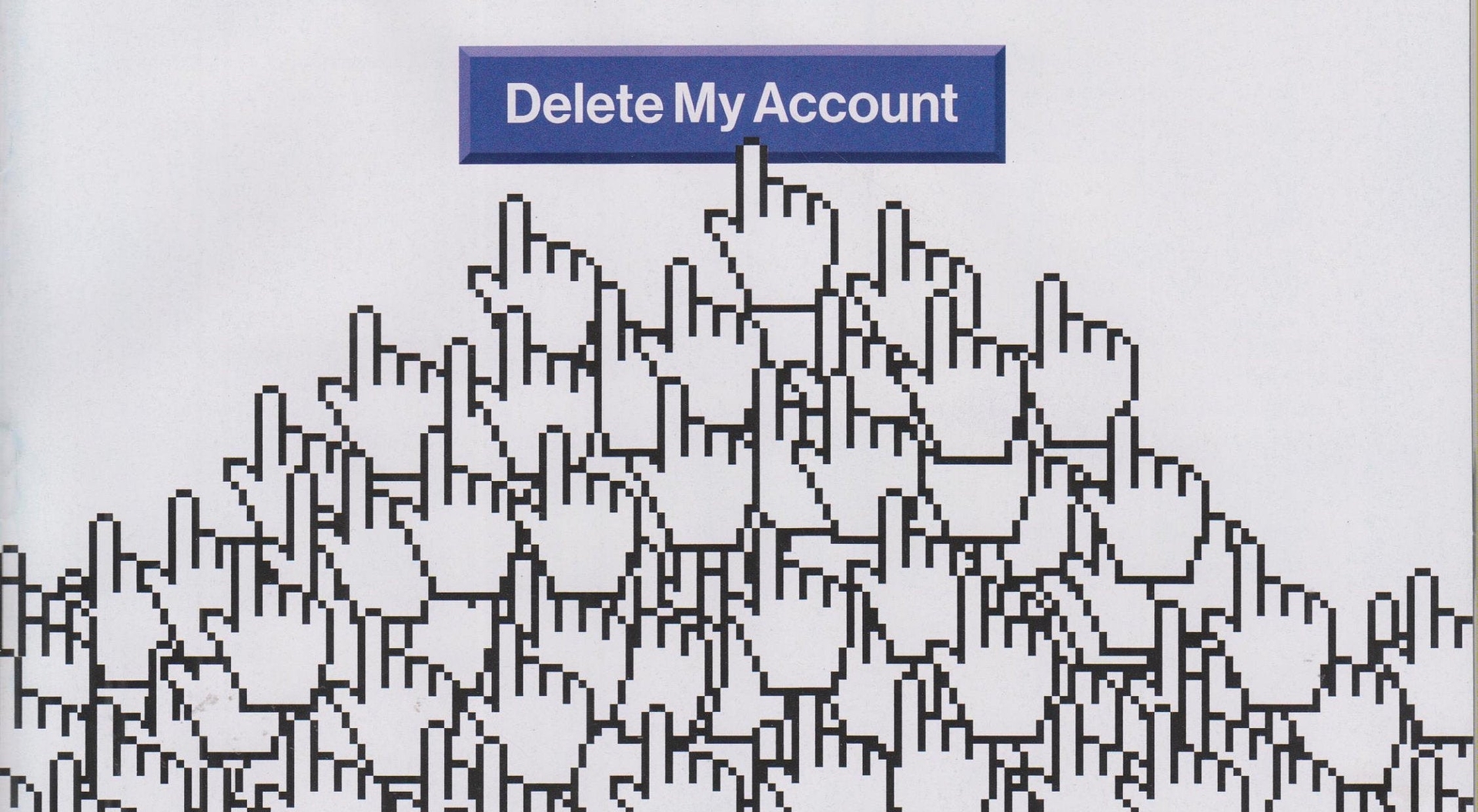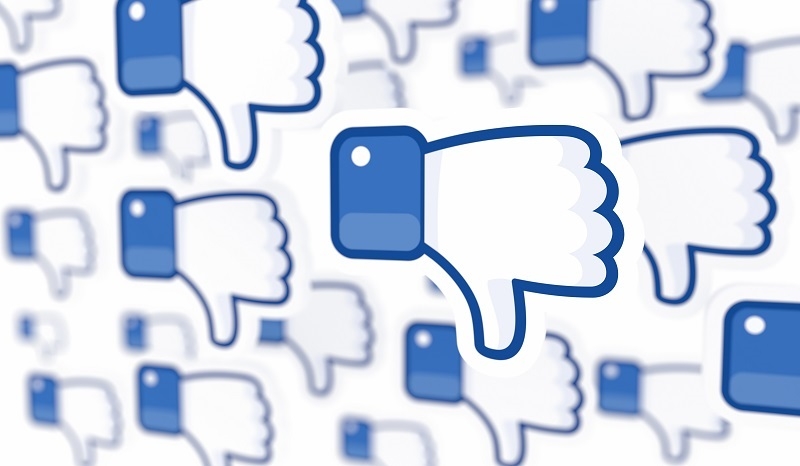Why the Facebook Epidemic Must Be Stopped
Facebook exploits its users' psychology to keep them hooked

If you’re like me, people have been telling you to delete Facebook for a while. The sentiment is echoed by news companies, ethical tech pioneers, and ardent privacy advocates. Delete Facebook, they cry, and you will remove your personal information from the clutches of ethically questionable corporations. You will stop the insidious tracking of the Facebook Pixel, a piece of persistent malware that follows you around the Internet and collects data from every site you visit. Let that sink in. The Facebook pixel tracks every site your alumni visit after they leave your university’s Facebook page. That’s not what you intended when you set up the page. Instead, regain control over how your alumni’s privacy is respected and who sees their data.

And yet, despite a recent surge in protests, viral #deleteFacebook movements, and a slew of negative media coverage, over 2.4 billion people continue to use Facebook every month. People remain inexorably tied to a company which, at least by a sentiment analysis of news articles written about it, consistently does harm, conducts behavioral experiments on its users and puts sinister clauses in its rarely-read Terms of Use policy. From secretly manipulating users’ emotions to tracking people’s locations based on their mobile phones’ location data, Facebook’s tactics have begun to appear increasingly dystopian. Unfortunately, that seems unlikely to change.
Over time, the Facebook epidemic spread and it became an inescapable component of the digital world. The effects of people becoming aware of Facebook's fake news, major privacy breaches, and election meddling have only negligibly impacted their profits. Even the highly publicized and extremely controversial Cambridge Analytica scandal barely dented the platform’s gargantuan user base. Though reported trust in Facebook dropped by a whopping 66% after the Cambridge Analytica trial, the company’s user base actually increased during that time period. The company’s integration into daily life has proven too convenient to opt-out of.

Psychological Manipulation
Supporters of the social network, as well as the company’s own mission statement, claim that Facebook’s goal is “to bring the world closer together.” However, spending time on Facebook often leaves people feeling more alone than they started. In a 2013 study conducted on young adults, researchers discovered that the more frequently subjects used Facebook, the faster their life satisfaction declined. As users compare the “highlight reel” of others’ lives to their own, the social comparison causes them to believe that everyone is happier and living better lives than their own. This, in turn, lowers users’ self-esteem, inducing and amplifying feelings of depression and anxiety.
Furthermore, for young females, the effects are even worse. Studies have proven that social media contributes to severe body dissatisfaction and worsened mood among teenage girls, and has been linked with the demographic’s nationwide rise in eating disorders. More disturbingly, a surge in teen suicides has been blamed on social media’s easy portal to harmful, provocative content, such as pro-suicide content and even suicide pacts. For vulnerable young minds, social media is a life-threatening problem.
Furthermore, Facebook deliberately exploits its user's psychology to keep them hooked to the site. Facebook’s team of cognitive scientists has carefully engineered an endorphin factory in the form of likes, comments, and shares, each of which gives users a quick hit of dopamine from interacting with the site. In a BBC interview, Facebook founding president Sean Parker regretfully stated that social media provides a “social-validation feedback loop that’s exactly the thing a hacker like myself would come up with...exploiting a vulnerability in human psychology.”
Chillingly, because Facebook’s entire platform is carefully engineered to be addictive, the evidence can be seen in the brains of its users. The brain activity involved in Facebook addiction looks similar to MRI scans to substance abuse and gambling addictions and has been linked to a decrease in the brain’s gray matter. Indeed, the epidemic has become so widespread that NCBI researchers have created a technical scale on which Facebook addiction can be measured. In the words of Psychology Today, social media has become “a race to the bottom of the brainstem.”

You Are the Product
Of course, all of the hours that avid users spend on Facebook offer enormous value to the company. Facebook’s revenue model is based almost entirely on ad revenue—the company makes money from users viewing and clicking on ads. The more data Facebook collects about an individual user, the more effective it will be able to sell that data to advertisers and third parties. Then, advertisers use that information for increasingly precise ad targeting, which translates into higher sales. This cycle is responsible for garnering about 1 billion dollars in advertising revenue per quarter. All at the high cost of user privacy.
This cycle is not only limited to Facebook’s own platform. Any sites that offer a convenient, “log in with Facebook” option are simply proxies for Facebook to extend its data-collection practices across the web. Clicking “yes” is like allowing a Trojan horse into your digital world—forgoing your privacy in favor of Facebook’s profits.
In fact, with a free tool created by privacy-centered startup Disconnect Inc, you can see exactly how much the data that Facebook collects about you is worth. According to some experts, the value that a single North American user can bring in is almost 200 dollars a year. To quote an old adage of the advertising industry: “if you don’t pay for it, then you are the product.”

A Frightening Future
Though Facebook’s current detriment to its users is well-documented, one of the most terrifying pieces of anti-Facebook evidence is the record of patents that the company has filed. One of the patents details the use of your posts, messages, purchases, and location data to predict when major events (such as births, graduations, and deaths) are likely to occur in your life. Another promises to analyze your romantic relationships based on the percentage of your friends of the opposite gender, the number of people in your profile picture, and how often you visit another user’s profile.
The list then goes on to detail Facebook’s capabilities to classify your personality, listen to what TV shows you watch at home, determine your home address, and track how much sleep you get every night. Though these technologies may not be currently developed, the intentions behind them are clear. Facebook wants to be involved in every component of your life—whether you like it or not.
In fact, Facebook has already rolled out an application designed to take control of your personal relationships. Named “Facebook Dating,” the application has a layout mirroring that of popular online dating app Hinge while differentiating itself as having extensive data about you and all of your friends. Though Facebook markets this a product advantage, claiming to pair you with matches truly aligned with your interests, the data gathered from your dating activity could serve as yet another convenient revenue source. According to Recode, Facebook Dating serves as “yet another reason for young people to open the app and allow Facebook into their personal lives.”
The Evidence
If you are still unconvinced about the extent of Facebook’s infiltration into your life, you can view the data that Facebook has collected from your profile for yourself. By navigating to “Ad Preferences” on your profile, you can see the agglomeration of Facebook’s data about your interests and affinities, as well as a list of companies who have uploaded your personal information to Facebook. The extent of the company’s knowledge may shock you.
Though I am not a particularly avid Facebook user, and primarily utilize the platform to reconnect with old friends, the “Interests” section contained hundreds of pages of information about my most minute preferences. Ranging from precise identifications of my favorite TV shows to more broad categories of interest such as “travel” and “comedy,” the data was at once damning and compelling. Facebook knew the brand of coffee that I drink in the mornings, that I had adopted a dog from a shelter, and that I enjoyed “extreme sports”. In fact, Facebook probably knew more about my interests than my real-life friends—a realization I found extremely disconcerting.
Facebook puts its targeted ad information available for all users to see on its site—yet few people take the time to read through. The company clearly lists the tools it uses to track your activity across the Internet (even when you are logged out of your account), and describes how it constantly tracks your location based on where your phone connects to the Internet. It details how it obtains additional data (such as your retail purchases from stores) about you from other companies, and then provides a list of companies who have shared such information with them. Not only does Facebook follow you throughout the web, but it tracks you throughout your life.
Though Facebook’s newly-announced vision claims to center on privacy, its message is a platitude for the disenchanted. Each Facebook user’s profile and post sharing settings are public by default, and navigating to the menu to change them is a difficult trek for the technologically unsavvy. In fact, Facebook has dubiously blamed bugs on changing the privacy settings of 14 million users from private to public. Of course, the company’s emphasis on public sharing is deliberate—after all, in Facebook’s ideal world, every user would share all of their content with everyone else. Facebook’s mission is not actually to connect the world—it’s to collect the world’s data.
Facebook’s advertising practices are no secret, but seeing your own data neatly laid out on a screen makes Facebook’s violation of user privacy feel pressing and personal. To make matters worse, the collection of data that Facebook has about each user grows over time, meaning that increasingly invasive information is constantly being added. Is there any way out?

The Alternative
As Tim Wu writes in a New York Times op-ed, Facebook’s missteps are a result of the company’s central business model. Since its creation, Facebook has been laser-focused on growth, a philosophy that has led to its exploitation of the psychology and privacy of users. Investors were promised a constantly improving capability to collect data about the largest amount of people possible. Changing this premise would mean upheaving the foundational principles the company was built on.
For this reason, the only way to remedy Facebook’s evils is to replace them completely. Wu writes that the ideal alternative to Facebook would be a platform that puts privacy first while refraining from the advertising revenue models incompatible with a trustworthy social network. A platform focused on meaningful content and honest interpersonal connection (as opposed to data exploitation and short-form, addictive content) would offer a valid alternative to Facebook’s transgressions. To fix Facebook, we have to replace it.
So, perhaps it is time to listen to those privacy advocates and reconsider your Facebook connection. After all, research has shown that deleting your Facebook account can lead to a significant increase in happiness levels. Regain control of your privacy, relationships, and mental health. Pick a platform that puts its users first, and leave Facebook behind.
Stay ahead of the curve with CueBack
The world of advancement is changing. Don’t get left behind. Stay ahead of the curve with insights from forward thinkers in the industry who are paving the way for tomorrow’s advancement professional leaders.